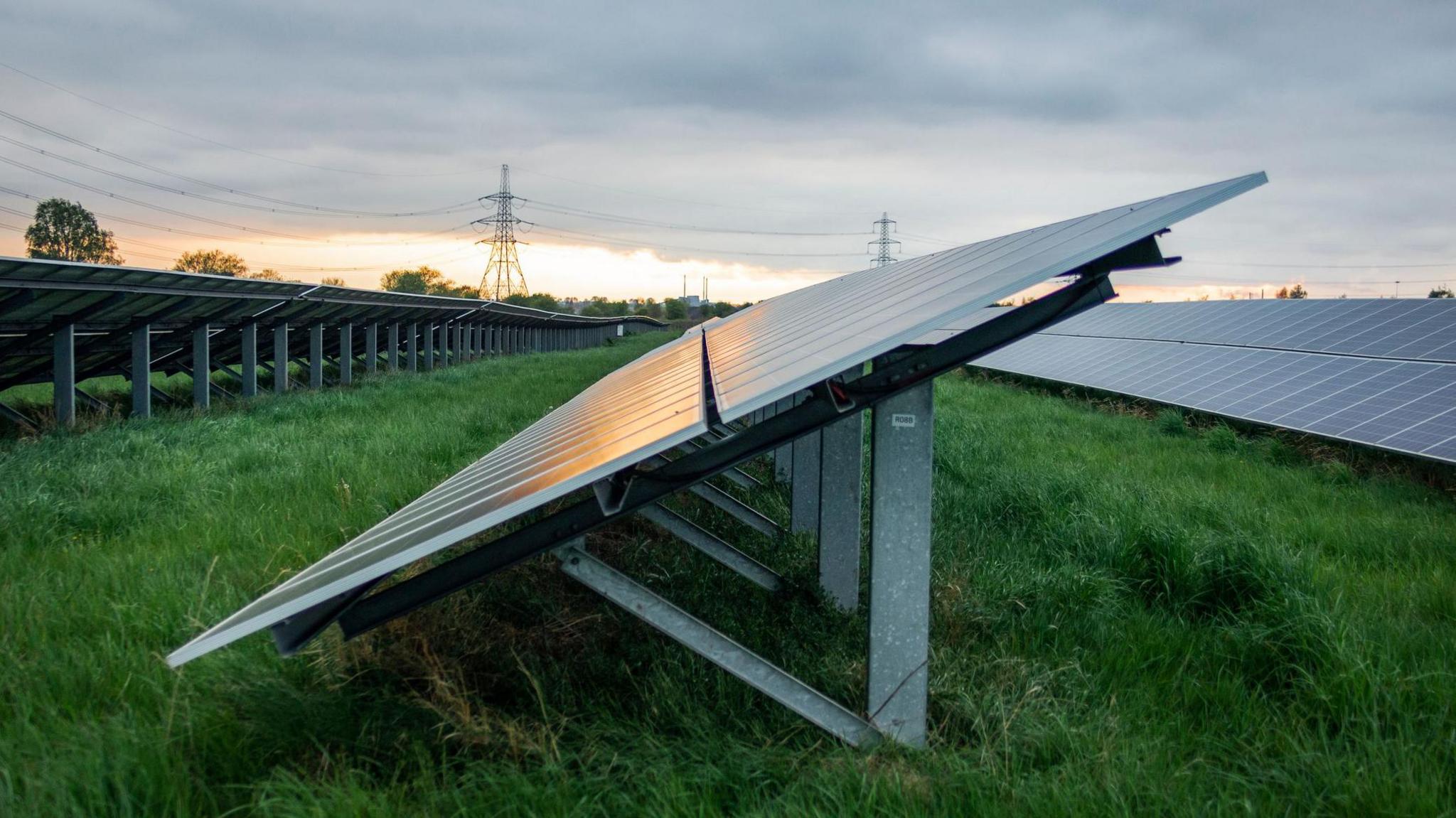Solar farm attracts criticism over threat to birds

Plans for a new solar farm have attracted criticism from residents over the use of agricultural land
- Published
A proposed new solar farm, to be built on agricultural land in North Yorkshire, would negatively impact endangered bird life in the local area, objectors to the scheme have said.
The 49.99 MW farm would be built on land close to Sutton-on-the-Forest.
In a planning application to North Yorkshire Council, developer Ampyr Solar Europe said the 95-hectare scheme would power 24,400 homes and save 21,000 tonnes of CO2 per year.
However, some concerned local residents said the proposed site was "good arable land" which feeds threatened species such as corn buntings, yellowhammers and yellow wagtails.
The energy developer said the proposed site, on fields off Brownmoor Lane, would comprise rows of solar panels laid out horizontally.
Plans state the panels would be mounted on metal frames facing north-south to maximise the absorption of sunlight.
The applicant claimed the land used for the solar farm would not occupy premium agricultural land and, if permission is granted, the farm would stand for 50 years.
'Birds need crops'
Supporting documents state the proposed development would cause some adverse impact visually, and on the landscape, but it was deemed "less than substantial harm" to the setting of a nearby Grade II-listed farmhouse.
According to the Local Democracy Reporting Service, several local residents have submitted objections to the application, which was filed last month.
One resident said: "This application is for monetary gain only, nothing to do with saving the planet or adding to biodiversity.
"The land is good arable land, not the downgraded fields, the applicant suggests.
"It's land rich in corn buntings, yellowhammers and yellow wagtails, all under significant threat. What use are additional hedges or grass to these birds? They need arable crops."
Another objector said: "The majority of this land is capable of supporting grassland and cereal crops, and no doubt has done since it became farmland.
"Losing it for 50 years seems such a shame, as food production in this country may become valued again within this time frame, potentially making the return from letting land for solar generation less financially attractive."
The council hopes to make a decision over whether to approve the application by October.
Get in touch
Tell us which stories we should cover in Yorkshire
Listen to highlights from North Yorkshire on BBC Sounds, catch up with the latest episode of Look North.